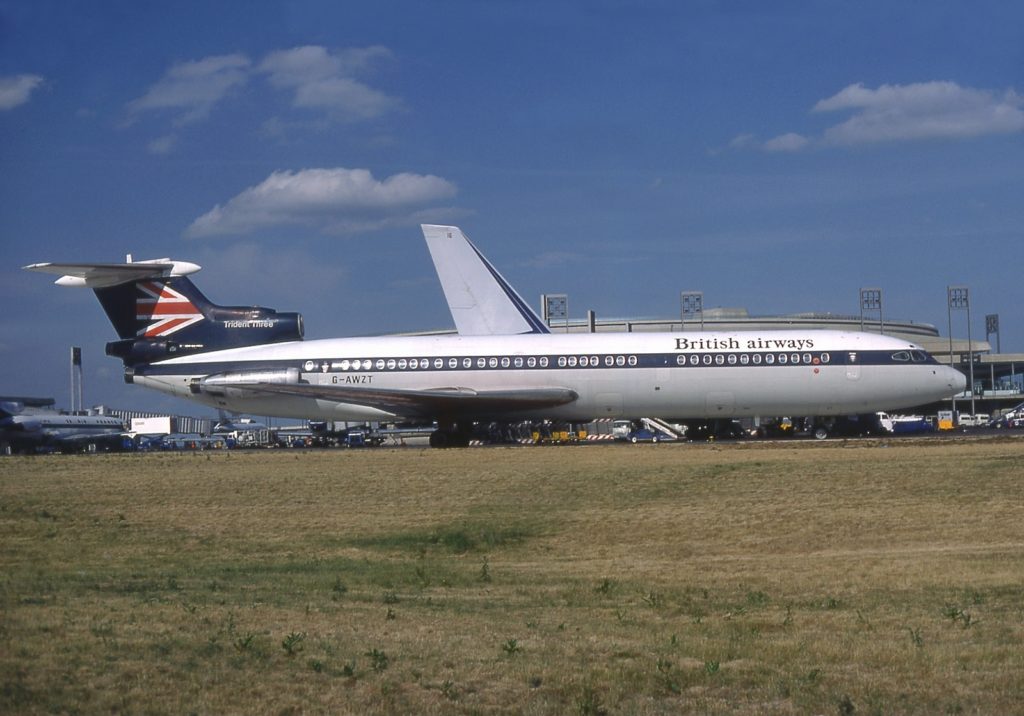Today is the anniversary of a mid-air collision over Yugoslavia, a crash that is one of the worst air disasters to involve a British airline, and the 3rd deadliest mid-air collision in history. It is also the only fatal accident in the history of British Airways.
On the 10th September 1976, British Airways flight 476 (BA476) took off from London Heathrow bound for Istanbul’s Ataturk airport. The Hawker Siddley Trident 3B (G-AZWT) was airborne at 08:32 UTC with 54 passengers and 9 crew on board.
Juts over an hour later, at 09:48 UTC, Inex Adria flight 550 (JP550), A McDonnel Douglas DC9 (YU-AJR) took off from Split Airport enroute to Cologne-Bonn airport in Germany. On board the DC9 were 106 passengers and 5 crew.
Both aircraft were heading for the same radio beacon, the Zagreb VOR. BA476 was cruising at Flight Level (FL)330 (33,000ft) and JP550 was climbing to FL350 (35,000ft).
Approaching the Zagreb VOR, JP550 informed ATC that they were passing FL327 (32,700ft), realising that the aircraft would be in conflict with the BA flight, Zagreb control asked the Inex Adria flight to level off. Zagreb Upper Control said “uh… hold yourself at your height and report passing Zagreb” to which JP550 replied asking what height to hold to which Zagreb Upper replied “The height you are climbing through because… uh… you have an aircraft in front of you at… [broken] 335 from left to right.”
The Inex Adria pilot acknowledged and informed Zagreb Upper “OK, we’ll remain precisely at 330”, the exact flight level of the BA Trident.
30 seconds later, the two aircraft collided in mid-air.
The two aircraft had collided over the town of Vrbovec, northeast of Zagreb, the DC-9’s left wing cutting through the Trident’s cockpit section and the explosive decompression that followed ripped apart the front of the aircraft. The rear two-thirds of the Trident fell to earth hitting tail first before sliding a short distance after impact with the ground.
The DC-9 lost over a third of its starboard wing which sent the aircraft a nose-dive and slammed into the ground.
Everyone on board both aircraft were killed.
Air Traffic Controllers at Zagreb were arrested almost immediately following the crash and charged with “endangering railway, sea or air traffic, threaten the lives of persons or property”. One controller, Zagreb Upper Airspace controller Gradimir Tasić, was found guilty and sentenced to seven years in prison.
After just over 2 years in prison Tasić was freed after a petition by Air Traffic Controllers resulted in the conclusion that Tasić had been used as a “scapegoat” for the events of that morning.
The UK’s Air Accident Investigations Branch (AAIB) concluded that improper ATC operation was the root cause of the accident, in particular, the failure of Zagreb ATC to ensure correct vertical separation of the aircraft, combined with non-compliance with regulations on listening and lookout in both cockpits.
The full findings of the Air Accident Investigations Branch (AAIB) are in the formal report which can be read here.
The accident is perhaps the very definition of an avoidable tragedy.

